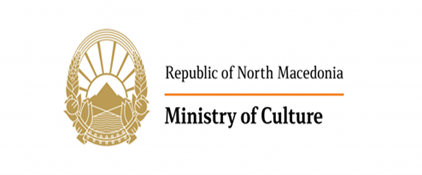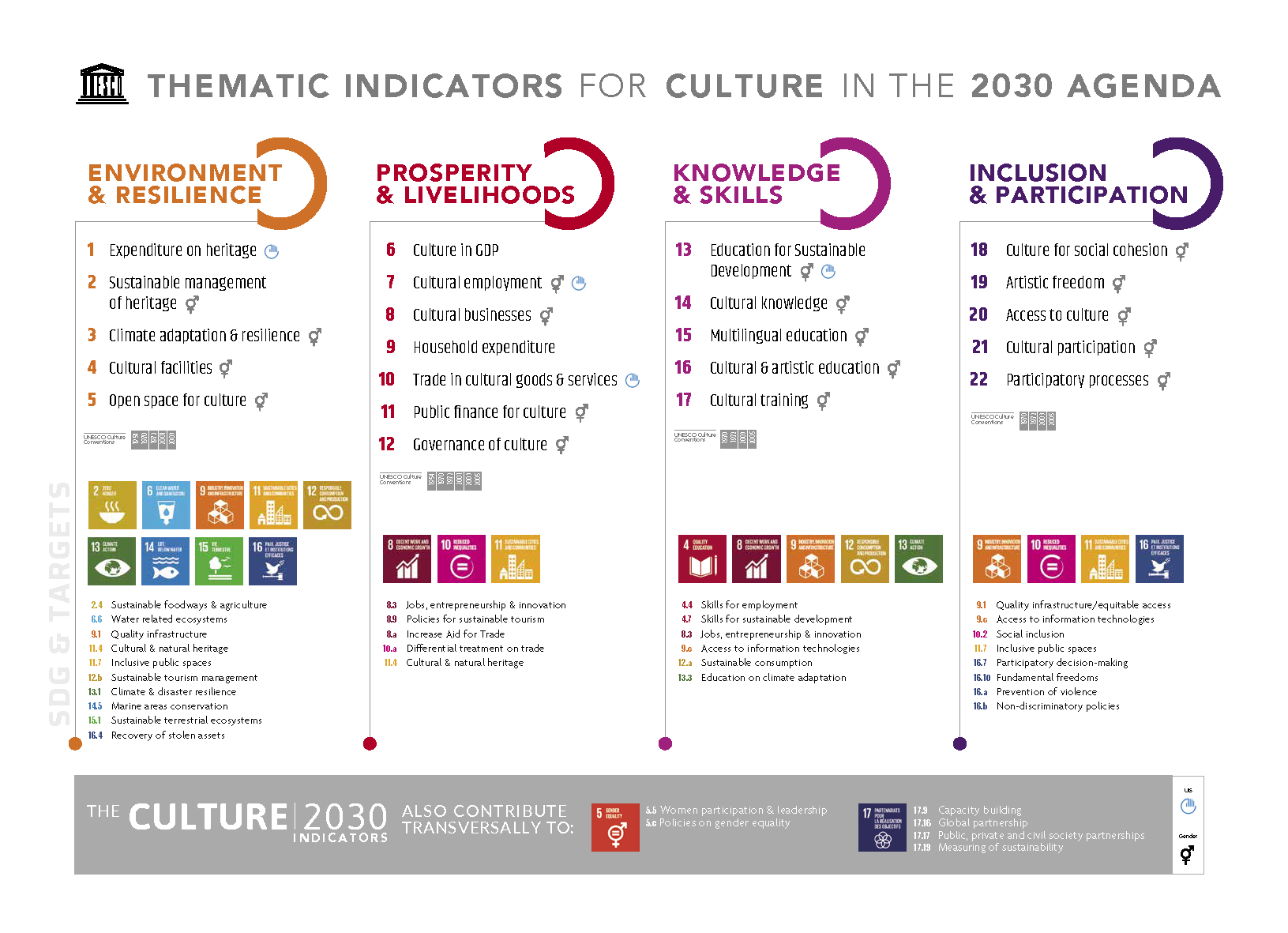Partners
Implementation of the UNESCO Culture|2030 Indicators in North Macedonia and the city of Skopje is with the support and partnership of the Ministry of Culture and the city of Skopje.
This is part of the pilot implementation in South - East Europe, overseen by the UNESCO Regional Bureau for Science and Culture in Europe in collaboration with the UNESCO World Heritage Centre in Paris.
Brief
The UNESCO Thematic Indicators for Culture ( UNESCO Culture|2030 Indicators) is a framework of thematic indicators whose purpose is to measure and monitor culture’s enabling contribution to the national and local implementation of the 2030 Agenda for Sustainable Development. It has been developed with the UNESCO Institute for Statistics (UIS) and other partners.
It provides 22 indicators grouped in four thematic dimensions:
Environment & Resilience
Prosperity & Livelihoods
Knowledge & Skills
Inclusion & Participation
Each dimension is linked to the sustainable development goals and the UNESCO Culture Conventions.
‘SDG 5’ on Gender equality and ‘SDG 17’ on Partnerships are cross-cutting across the dimensions. Additional indicators are also under development to measure culture’s contribution to 'SDG 16 on peacebuilding
Stakeholders
While relying in priority on national statistical institutes, the UNESCO Culture|2030 Indicators will seek to bring together a variety of data sources, including from different ministries, observatories and public agencies, information systems for culture, specific barometers, specific national and regional surveys, and professional volunteer organization. The project will also support countries to enhance existing data within the UNESCO Culture Conventions periodic reports as well as the cultural data produced by UIS.
This process is highly collaborative engaging a wide of range of stakeholders involved in the policy spectrum, Ministries, departments, agencies operating in the four thematic dimensions of the framework (e.g. culture, development and planning, education, trade and industry, gender etc.), culture related organizations and networks, civil society and professional organizations, research institutions including academia and national institutes.
Implementation
The implementation of the UNESCO Culture|2030 Indicators trains and sensitizes national and municipal technical specialists, notably within statistical agencies or cultural institutions, in collecting and analyzing quantitative and qualitative data in the field of culture.
The pilot implementation of the UNESCO Thematic Indicators for Culture in the 2030 Agenda (UNESCO Culture|2030 Indicators) has been launched in the Republic of North Macedonia and the city of Skopje. A kick-off workshop was organized by the Ministry of Culture and city of Skopje in close collaboration with UNESCO, on 6th June 2022. The workshop gathered 40 participants, including representatives and institutions from the national and local authorities, as well as civil society organizations, academics, the private sector, and other competent entities whose work is informed by culture and heritage.
Data Bank
Implementation results of the UNESCO Culture|2030 Indicators are available on the UNESCO Culture|2030 Indicators Data Bank





